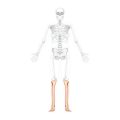Introduction to the NHS and Joint Replacement Surgeries
The National Health Service (NHS) is a cornerstone of healthcare provision in the United Kingdom, renowned for its commitment to offering comprehensive medical services free at the point of use. Established in 1948, the NHS has grown to become one of the world’s largest publicly funded health systems, supporting millions across England, Scotland, Wales, and Northern Ireland. Among its many vital services, the NHS plays a pivotal role in providing joint replacement surgeries, particularly hip and knee replacements. These procedures are increasingly common due to the UK’s ageing population and the rising prevalence of osteoarthritis and other degenerative joint conditions. Hip and knee replacements are life-changing operations that can significantly improve mobility, reduce pain, and enhance quality of life for those affected by severe joint problems. With thousands of these surgeries performed each year across NHS hospitals, their importance cannot be overstated. The NHS not only ensures access to these essential procedures but also provides holistic support throughout the entire patient journey, from initial consultation to post-operative recovery and long-term rehabilitation.
2. Hospital-Based Care: Immediate Post-Operative Support
Upon completion of hip or knee surgery, patients are cared for within NHS hospitals by a multidisciplinary team dedicated to ensuring a smooth and safe start to recovery. The initial hours and days after surgery are crucial for laying the foundation for successful rehabilitation and long-term outcomes. Here’s how the NHS provides immediate post-operative support:
Pain Management
Effective pain control is essential in the first stage of recovery. NHS hospitals employ a range of methods tailored to individual needs, such as oral medications, patient-controlled analgesia (PCA), and regional nerve blocks. Nurses closely monitor pain levels, adjusting treatment plans to keep discomfort at bay while minimising side effects. This proactive approach helps patients begin movement and therapy sooner, reducing complications.
Physiotherapy: Early Engagement
Physiotherapists play an integral role from day one after surgery. Their focus is on gentle exercises and mobility techniques that promote circulation, prevent stiffness, and encourage joint function. Early engagement with physiotherapy also supports confidence-building for patients, helping them understand the importance of movement in their recovery journey.
Early Mobilisation Within the Ward
Getting up and moving as soon as medically appropriate is a key principle in NHS post-operative care. Nurses and therapists guide patients through safe transfers from bed to chair, assisted walking, and use of mobility aids such as frames or crutches. The aim is to reduce the risk of complications like blood clots or chest infections while fostering independence from the outset.
Overview of Immediate Post-Operative Support Activities
| Support Area | Typical Activities | NHS Team Members Involved |
|---|---|---|
| Pain Management | Medication administration, pain assessment, adjustment of analgesia | Nurses, Anaesthetists, Pharmacists |
| Physiotherapy | Bed exercises, assisted walking, education on joint protection | Physiotherapists, Nurses |
| Early Mobilisation | Transfers out of bed, supervised walks within ward, mobility aid training | Nurses, Physiotherapists |
The Importance of Compassionate Care
The NHS places great value on providing not just clinical support but also emotional reassurance during this vulnerable time. Staff members offer encouragement and personalised attention to help ease worries and empower patients as they take their first steps towards recovery within the hospital setting.

3. Coordinated Discharge Planning and Patient Education
The transition from hospital to home is a pivotal moment in the post-operative journey, especially following hip and knee surgeries. The NHS recognises that well-orchestrated discharge planning is essential for safeguarding patient wellbeing and promoting optimal recovery. Upon nearing the end of their hospital stay, patients undergo a comprehensive discharge assessment conducted by a multidisciplinary team. This team often includes physiotherapists, occupational therapists, nurses, and social workers, all working collaboratively to evaluate the patient’s medical condition, mobility needs, and support systems at home.
Discharge Assessments: A Personalised Approach
Discharge assessments are tailored to each individual, taking into account not only clinical progress but also personal circumstances. The NHS emphasises a holistic approach, ensuring that any potential risks or barriers to recovery are addressed before patients return home. This might involve reviewing medication regimes, pain management strategies, and any ongoing therapy requirements. For those living alone or with limited support, additional community resources may be organised to provide extra reassurance and assistance during the critical early days after surgery.
Personalised Recovery Plans
At the heart of effective discharge planning lies the development of a personalised recovery plan. These plans outline clear instructions regarding wound care, exercises recommended by physiotherapists, follow-up appointments, and signs of complications that warrant immediate attention. The NHS ensures that each patient receives written guidance alongside verbal explanations, recognising that information can easily be forgotten amidst the stresses of leaving hospital.
Guidance on Home Adaptations
Preparing the home environment is another vital element of NHS support. Patients are offered practical advice on making adaptations such as installing handrails, arranging furniture for ease of movement, or accessing equipment like raised toilet seats and shower chairs. Occupational therapists may even conduct home visits or virtual assessments to identify specific hazards and suggest improvements tailored to the patient’s living situation.
Empowering Patients Through Education
Education remains a cornerstone of post-operative care within the NHS framework. Before leaving hospital, patients—and where appropriate, their carers—are encouraged to ask questions and discuss concerns openly with staff. By equipping individuals with knowledge about their recovery pathway and available local services, the NHS fosters independence while offering gentle reassurance that help remains close at hand should it be needed.
4. Community and Home-Based NHS Services
The journey to full recovery following hip or knee surgery does not end once a patient leaves hospital. The NHS recognises the importance of comprehensive, ongoing care delivered within the comfort of one’s own home or local community. This approach ensures that patients continue to receive essential support tailored to their individual needs, fostering confidence and independence as they regain mobility.
Key Roles in Community and Home-Based Care
After discharge, a multidisciplinary team steps in to provide a seamless transition from hospital to home. Here are the primary professionals involved:
| Role | Main Responsibilities | How They Support Recovery |
|---|---|---|
| Community Nurse | Monitors wound healing, manages medication, and provides general health advice. | Ensures wounds heal properly and addresses concerns such as pain or infection, helping patients feel reassured at home. |
| Physiotherapist | Designs personalised exercise programmes and monitors progress. | Encourages safe movement, reduces stiffness, and helps restore strength and flexibility in the joint. |
| Occupational Therapist | Assesses living environment and suggests adaptations or equipment. | Makes daily activities safer and easier, promoting independence in tasks like bathing or using stairs. |
Rehabilitation and Progress Monitoring
The NHS prioritises regular follow-up appointments and communication between patients and their care teams. Through home visits or virtual check-ins, therapists can adjust rehabilitation plans based on each individual’s progress, address new challenges, and motivate patients to stay engaged with their recovery. This gentle yet proactive approach ensures concerns are identified early—be it delayed healing, pain management issues, or mobility setbacks—so that interventions can be put in place promptly.
Local Resources and Support Networks
The NHS also connects patients with local resources such as community exercise classes, peer support groups, or walking clubs, all of which foster social connection while supporting physical recovery. These networks are especially valuable for those living alone or who may feel isolated during their rehabilitation journey.
A Continuum of Compassionate Care
This ongoing commitment from the NHS means that patients recovering from hip and knee surgeries are never alone; instead, they receive consistent encouragement and expert guidance every step of the way towards renewed wellbeing and independence.
5. Access to Rehabilitation Services and Local Support Programmes
After hip or knee surgery, timely and appropriate rehabilitation is crucial for a successful recovery. The NHS recognises the importance of ongoing support and funds a range of rehabilitation services tailored to individual needs. Outpatient physiotherapy is widely available across NHS trusts, offering guided exercises and progress assessments led by trained physiotherapists. These sessions help patients regain strength, improve mobility, and build confidence in their daily activities.
For those who benefit from gentle, low-impact exercise, hydrotherapy—often referred to as aquatic therapy—is provided at select NHS facilities. Exercising in warm water can reduce pain and make movement easier, particularly in the early stages after surgery. Patients are usually referred to these services by their orthopaedic team or GP based on clinical need.
In addition to clinical therapies, peer support groups play an invaluable role in the emotional and social aspects of recovery. Many NHS hospitals collaborate with local charities and community centres to facilitate group meetings where individuals can share experiences, offer encouragement, and learn practical coping strategies from others who have undergone similar procedures.
The NHS also works closely with community resources throughout the UK, ensuring that patients—regardless of where they live—have access to support close to home. Local councils may provide additional services such as home adaptations, falls prevention workshops, or transport assistance for those attending appointments. Information about these resources is often shared during discharge planning or follow-up visits.
This comprehensive approach ensures that every patient receives not only medical care but also the physical, psychological, and community support needed for a smooth transition back into everyday life.
6. Ongoing Support and Addressing Challenges in Recovery
As patients continue their journey to full recovery following hip and knee surgeries, the NHS remains a steadfast partner, providing ongoing support tailored to individual needs.
Follow-Up Appointments and Monitoring Progress
After surgery, regular follow-up appointments with orthopaedic specialists or physiotherapists are a key component of the NHS care pathway. These appointments allow healthcare professionals to monitor healing, assess mobility improvements, and adjust rehabilitation plans as necessary. Patients are encouraged to attend all scheduled reviews, as early detection of any issues can significantly improve long-term outcomes.
Managing Complications Effectively
While most recoveries proceed smoothly, complications such as infection, blood clots, or joint stiffness may occasionally arise. The NHS provides clear guidance on recognising warning signs—such as increased pain, swelling, redness, or fever—and urges patients not to hesitate in seeking advice if concerns emerge. Prompt management within the NHS framework ensures that potential problems are addressed swiftly and effectively.
Mental Health Support During Recovery
The emotional and psychological impact of major surgery is often underestimated. The NHS recognises this challenge and offers access to mental health resources for those struggling with anxiety, low mood, or other concerns during recovery. Patients can speak with their GP about referral options for counselling or community mental health services, ensuring holistic care that supports both mind and body.
Knowing When to Seek Further Help
The NHS encourages open communication between patients and their care teams. Should new symptoms develop or recovery stall unexpectedly, individuals are advised to contact their GP practice, use NHS 111 for urgent queries, or return to hospital if instructed. Clear guidelines help patients feel empowered and confident in seeking help when needed.
A Continuum of Care Within the NHS
The journey after hip or knee surgery does not end at discharge. With its integrated approach—spanning medical reviews, complication management, mental wellbeing support, and accessible advice—the NHS stands ready to guide every patient through the ups and downs of recovery with compassion and expertise.

